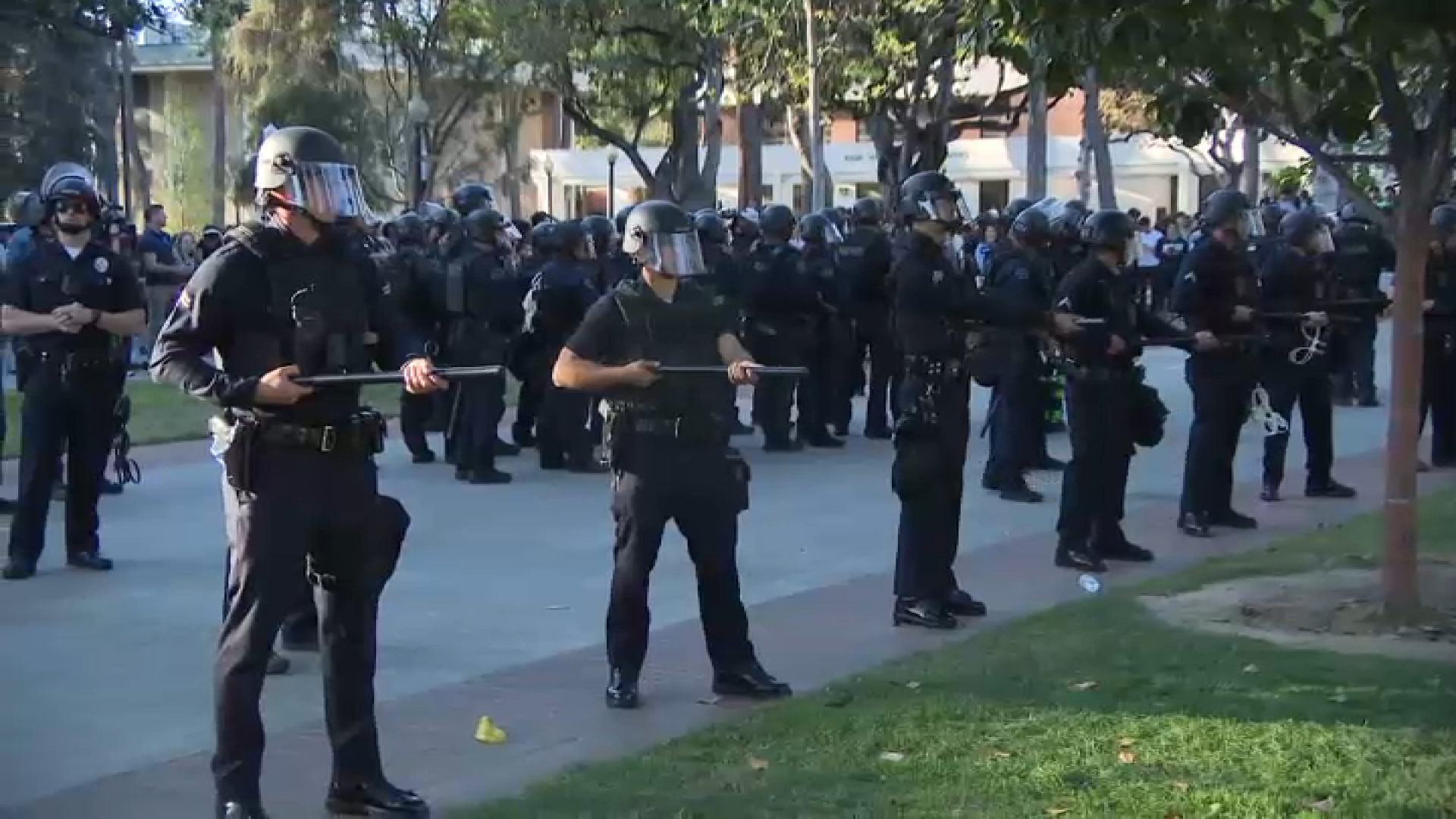An attorney acknowledged Monday that a Palmdale man committed "unspeakable acts of abuse" against his girlfriend's 8-year-old son before "exploding into a rage of anger" that the defense maintains resulted in the boy's unintentional death, but a prosecutor said the youngster was systematically tortured because the defendant believed the child was gay.
Isauro Aguirre, 37, is charged with capital murder in the May 22, 2013, beating death of Gabriel Fernandez, as is the boy's 34-year-old mother, who will be tried separately.
"He is guilty of murder," defense attorney John Alan told the seven-woman, five-man jury in his opening statement, but he said the evidence would show that "Isauro never intended for Gabriel to die" and that his client should not have been charged with a special circumstance allegation of torture that could bring the death penalty.
Deputy District Attorney Jonathan Hatami relied on more than a dozen close-up photos to illustrate the "systematic torture of a helpless and innocent child" whose mother, Pearl Sinthia Fernandez, could also face the death penalty if convicted.
Before opening statements began, the bailiff in the downtown Los Angeles courtroom warned that "this is a highly emotional case" and asked everyone to either keep their emotions in check or leave the room to avoid being barred from the trial.
Hatami showed jurors a photo of Gabriel at 7 years old, "happy and healthy," before he moved from his grandparents' home to go live with his mother and Aguirre in 2012.
"This case is about one thing, and that is the systematic torture of a helpless and innocent child," Hatami said. "After eight months of living with the defendant ... his body was battered. The evidence will show he was beaten, burned, bruised," Hatami told jurors, displaying a photo of Gabriel lying in a hospital bed.
News
Top news of the day
The prosecutor noted that Aguirre when arrested stood 6 feet 2 inches tall and weighed 270 pounds. As a security guard, he was trained in the use of a baton and pepper spray and was "nothing more than a bully" who routinely abused the 4 foot, 1 inch boy, who weighed 59 pounds, the prosecutor said.
He said that two weeks after the child moved in with the defendants, the boy asked his first-grade teacher, "Is it normal to be hit with the metal part of a belt and to bleed?"
A month later, Gabriel came to school with his hair shaved into a mohawk, but with "chunks of his hair missing ... bloody scabs ... a busted lip," the prosecutor said. "Gabriel cries almost every day after school ... because he doesn't want to go home."
The youngster missed school for two weeks that April.
"(Aguirre and Fernandez) were torturing him and they were beating him" and texting back and forth about it, Hatami told the jury. A worker at a welfare employment office called 911 to report the boy's injuries on April 26, 2013, after seeing "that he has black eyes, bruises, burn marks, ligature marks," the prosecutor said.
Thirteen days before he was killed, Gabriel was taken out of school again.
"He'll never go back," Hatami said, telling the panel that the child's teacher later found a note in his desk that read, "I love you mom and Gabriel is a good boy."
The couple told authorities that Gabriel had gone to live with a grandmother in Texas. At least one teacher doubted that account and a deputy followed up by visiting the home listed on the boy's school records, which turned out to be the address of Aguirre's parents, Hatami said.
The defendants were "conspiring together to deceive everyone in order to torture Gabriel to death," he alleged. At home, Gabriel was forced to sleep tied up and bound in a small cabinet in the defendants' room, with a sock gagging his mouth and a bandanna over his face, the prosecutor said.
Hatami pulled a cover off a rectangular object in the courtroom to reveal the "cubby" where Gabriel slept night after night. He said "Gabriel was already dying" when Aguirre "punched him and he kept punching him" on May 22, 2013, slamming his head into a wall so hard that the wall was damaged.
Aguirre told investigators that he hit the boy 10 times in the head, 20 times in the body and "admitted that he lost count," the prosecutor said. When the child was knocked unconscious, the couple "attempted to clean the blood off the walls and the floors ... they agreed on a story to tell the authorities ... all of this while Gabriel was lying on the floor dying," Hatami said.
Fernandez' two other children were at home during the final beating, according to the prosecutor, who said the couple later told police that Gabriel "liked to hit himself, he was gay and he wanted to kill himself."
The weapons found in the home and used against the victim during months of "constant and unrelenting abuse" included a wooden club, a collapsible metal baton, BB guns, pepper spray, steel-toed boots, and belts and a data cord used as whips, he said.
An autopsy found cat litter and animal hair in the boy's stomach and a shrunken thymus gland "from being starved."
"This wasn't about drugs. This wasn't about mental health issues," Hatami said. "(Aguirre) did it because he didn't like him ... he believed Gabriel was gay and to him that was a bad thing ... he did it out of hatred of a little boy."
Alan began his opening statement by telling jurors that "the facts of this case are unimaginable," and said he and co-defense counsel Michael Sklar "will not tell you one word different."
"Although the evidence will show that Gabriel suffered horrific, severe abuse over weeks and months at the hands of Isauro and Pearl, it was the beating ... that killed him," Alan said.
The night the boy was fatally beaten began with an argument about his refusal to put away his toys. According to Alan, Gabriel's mother then told Aguirre that her son had asked her to leave him and promised to behave better if they went away.
Aguirre confronted the boy, who denied making the comments, and the defendant flew into a rage, his attorney said. "Isauro has a very hard time handling stressful, chaotic situations," the defense attorney told jurors. After the beating, when he realized the boy was unconscious, Aguirre put the youngster in the shower and repeatedly hollered his name, trying to revive him, Alan said.
"Isauro immediately began performing CPR and told Pearl to call 911," he said. "Isauro took the phone and requested emergency medical help for his son who was not breathing."
Though he lied to the 911 operator, he also "carefully followed the 911 operator's instructions," and paramedics "found Isauro in the bedroom attending to Gabriel," Alan said. "Those are not the actions of a person who ever wanted Gabriel to die. Once you've heard the evidence in this case, you will find ... Gabriel was tortured, abused and neglected ... that Isauro ... committed the crime of murder ... (but) the special circumstance allegation is not true."
The first witness was a Los Angeles County firefighter-paramedic sent to the defendants' home in the 200 block of East Avenue Q-10 in response to a call that the boy was not breathing. Paramedic James Cermak said his first glimpse of the boy was when his partner carried the child's "limp, lifeless body" out of the couple's bedroom.
They started CPR and administered epinephrine three times in a bid to start the child's heart, but couldn't get a pulse, he said, noting that as they worked on the boy, "we just started noting all the trauma on his body."
"Strangulation marks around his neck ... bite marks, bruises head to toe, little holes like if he was shot with a BB gun. The more you looked, the more you saw. It was unbelievable," Cermak said, choking up.
Fernandez and Aguirre were sitting together on a couch as the paramedics worked, the firefighter testified.
"See either of them crying?" Hatami asked.
"No."
"See either of them being hysterical or showing any empathy toward Gabriel?"
"Not at all," Cermak testified.
Gabriel was declared brain dead that day and was taken off life support two days later.
His death triggered investigations into the county's child welfare system and resulted in criminal charges of child abuse and falsifying public records being filed against two former county social workers and two of their supervisors, who are due back in court Friday for a pretrial hearing.
Aguirre and Fernandez were indicted in July 2014. The trial is expected to last six to eight weeks.



